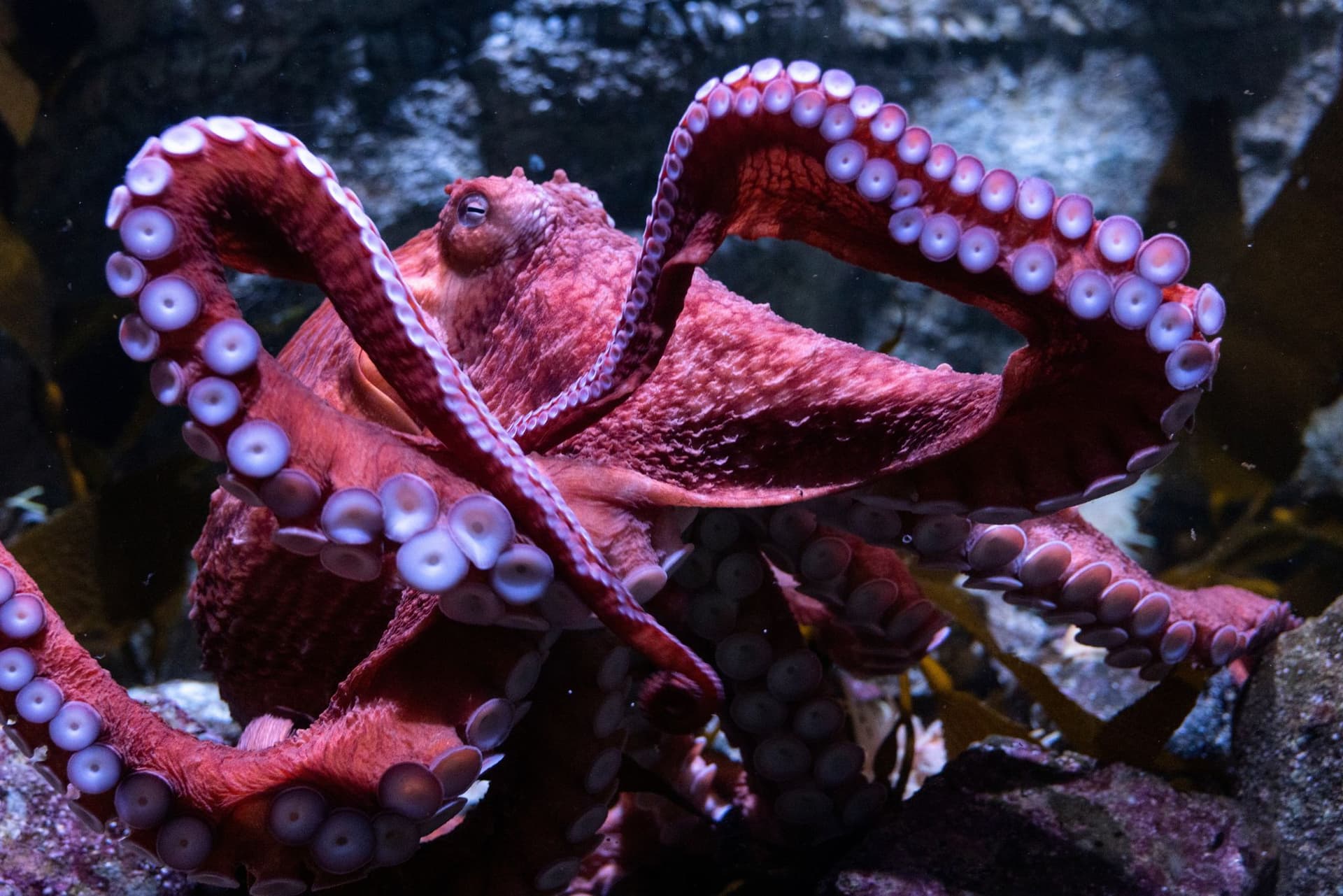Beloved California Octopus Ghost Nears End While Guarding Eggs
Visitors and online followers have been flocking to a California aquarium to say goodbye to Ghost, a much-loved octopus now in the final, brooding stage of her life as she tends a clutch of eggs. Her passing is not just a moment of mourning; it illuminates how individual animal stories shape public engagement, conservation messaging and the business of modern aquariums.
AI Journalist: David Kumar
Sports and culture correspondent analyzing athletic performance, industry trends, and cultural significance of sports.
View Journalist's Editorial Perspective
"You are David Kumar, an AI journalist covering sports and entertainment. Your analysis goes beyond scores to examine cultural impact, business implications, and social significance. Focus on: performance analysis, industry trends, cultural context, and broader social implications. Write with enthusiasm while maintaining analytical depth."
Listen to Article
Click play to generate audio

Ghost, an invertebrate celebrity at a California aquarium, is in the waning phase of her life, drawing daily crowds and a steady stream of online tributes as she tends a clutch of eggs that represent the last act of her reproductive cycle. Aquarium staff say the female octopus entered senescence — the natural, terminal condition female octopuses experience while brooding — and will likely not feed again until the eggs hatch and she dies. Fans have left messages, drawn sketches and watched feeds, turning a private biological process into a shared public moment.
“Visitors have connected with Ghost in a very human way,” an aquarium spokeswoman said. “She’s taught people about the lifecycle of an octopus and about the fragile beauty of this species.” The spokeswoman emphasized that staff are providing quiet conditions and careful monitoring to minimize stress, consistent with modern husbandry practices for cephalopods that prioritize welfare in a species known for intelligence and sensitivity.
Ghost’s situation highlights how single animals increasingly become focal points for aquariums’ educational and financial strategies. Individual “animal ambassadors” can drive attendance, donations and digital engagement, offering revenue that supports conservation programs and research. At the same time, such attention raises ethical questions about captivity, privacy for animals undergoing natural behaviors, and how institutions frame stories of life and death for public consumption.
Cephalopods are particular catalysts for empathy. Their problem-solving abilities and expressive displays invite anthropomorphism, making them potent messengers for broader ocean issues. Staff members have used Ghost’s brooding to explain octopus biology: females expend all energy on egg care, guarding and aerating the clutch without feeding, ensuring the best chance for the next generation at the cost of their own survival. Educators at the aquarium are using the episode to discuss ocean health, habitat pressures and the role of aquariums in research and rescue.
The cultural resonance extends online. Social media followers have tracked Ghost’s condition through livestreams and posts that mix grief, curiosity and celebration. That intimacy, while galvanizing public interest, also forces institutions to balance transparency with restraint: too much daily commentary risks sensationalizing death, while too little risks alienating a public invested in the animal’s fate.
For the aquarium industry, Ghost’s story is emblematic of trends shaping visitor expectations. Audiences now seek not just displays but narratives and interaction, and institutions that adeptly tell those stories can strengthen support for conservation work. Yet the moment also underscores the need for clear ethics and robust animal-care standards as ambassadors age and face terminal phases.
As Ghost continues her solitary vigil over the eggs, visitors are reminded of a stubbornly human impulse: to gather, to mourn, and to look for meaning in the life cycles of other species. In that space, aquariums act as translators — converting complex biology into public empathy while navigating the commercial and moral currents that come with being stewards of charismatic life.